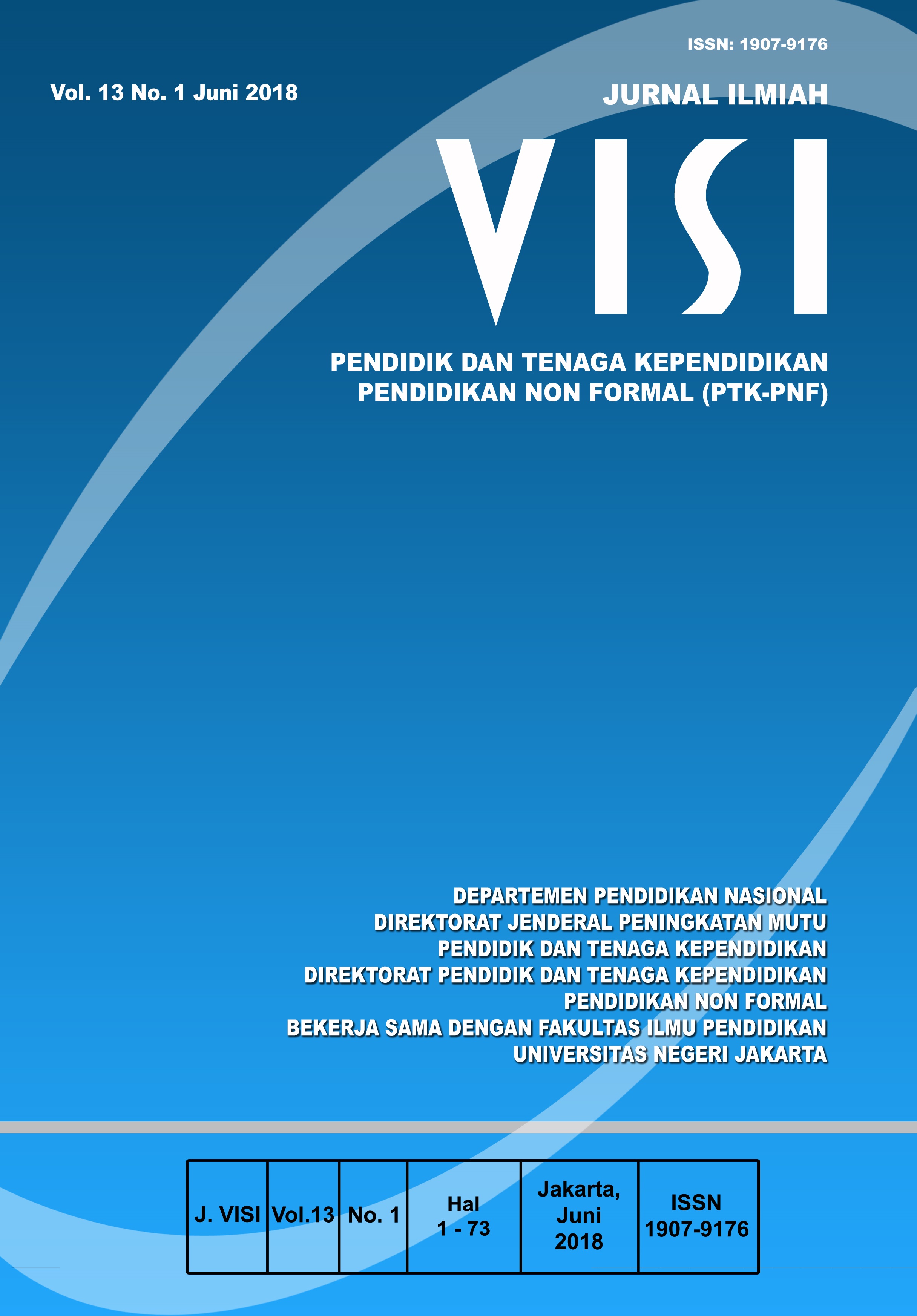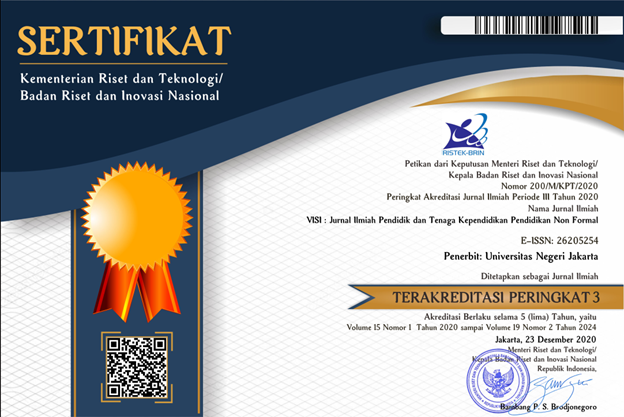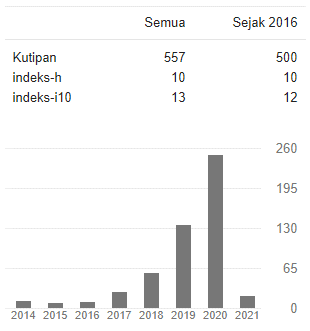PEMBENTUKAN DAN TRANSFORMASI CORE VALUES DI SEKOLAH ALAM
DOI:
https://doi.org/10.21009/JIV.1301.3Keywords:
nature school, transformation, core valuesAbstract
Research background by the phenomenon of the success of the School of Nature in realizing its existence as one of the alternative educational institutions in Indonesia. The success is based on its ability to form and transform its core values. This study aims to describe the process of formation and transformation of core values based on environmental peculiarities and local wisdom in the School of Nature Baturraden (SABar). The study was conducted in February - August 2017 at SABar located within the Damar forest of Baturraden campground. This research used a qualitative approach and collected data by observation, interview, and documentation technique. The data were analyzed by the interactive model of qualitative analysis technique, including data collection, data reduction, data presentation, and conclusion drawing. This research showed that all education and learning activities are conducted by the integrative holistic approach by making the forest to a place, source, and learning media in the process of awareness, enlightenment, empowerment, character and behavior building of the children. Core values developed by Baturraden Nature School are based on five SABar values that are soulful, morals, beyond, achieve, and responsible. These values become distinctive values and differentiator with other nature schools and become a brand of Baturraden nature school. In addition, the school embodies four dimensions of core values agreed upon in the national network of nature school, which are curriculum, method, environment, physical, and community.
References
Baharudin. (2014). Gagasan Ivan Illich tentang pendidikan dalam buku deschooling society. Terampil, 2(2), 118-151. https://anzdoc.com/gagasan-ivan-illich-tentang-pendidikan-dalam-buku-deschoolin.html
Collins, J. (2014). Good to great. Jakarta: Gramedia Pustaka Utama.
Dewey, J. (2009). Pendidikan dasar berbasis pengalaman. Yogyakarta: I Publishing.
Freire, P. (1984). Pendidikan sebagai praktek pembebasan, terjemahan Alois A. Nugroho. Jakarta: Gramedia.
Freire, P. (2000). Pendidikan kaum tertindas. Jakarta: LP3ES. Diakses dari http://sekolahalam.id/alam.
Illich, In. (2005). Bebaskan masyarakat dari belenggu sekolah. Jakarta: Yayasan Obor Indonesia.
Pella, D.A. (2008). Semuanya bermula dari core values. Diakses melalui https://darminpella.wordpress.com
Reimer, E. (1987). Sekitar eksistensi sekolah: Sebuah essay tentang alternatif-alternatif pendidikan. Yogyakarta: Hanindita.
Sadulloh, U. (2015). Pengantar filsafat pendidikan. Bandung: Alfabeta.
Safar, M. (2015). Sekolah di atas awan. Bandung: Thabi’ Press.
Strauss, A., dan Corbin, J. (2003). Dasar-dasar penelitian kualitatif. Yogyakarta: Pustaka Pelajar.
Sugiono. (2014). Metode penelitian. Bandung: Alfabeta.
Tilaar, H.A.R. (2009). Kekuasaan dan pendidikan: Manajemen pendidikan nasional dalam pusaran kekuasaan. Jakarta: Rineka Cipta.
Tilaar, H.A.R. (2012). Perubahan sosial dan pendidikan: Pengantar pedagogik transformatif untuk Indonesia. Jakarta: Rineka Cipta.
Wardani, IG.A.K., dkk. (2014). Perspektif pendidikan SD. Jakarta: UT Press.
Yahya, A. (2003). Great spirit, grand strategy corporate philosophy, leadership architecture, and corporate culture for sustainable growth. Jakarta: Gramedia.
Downloads
Published
How to Cite
Issue
Section
License
Authors who publish with this Journal agree to the following terms:
- Author retain copyright and grant the journal right of first publication with the work simultaneously licensed under a creative commons attribution licensethat allow others to share the work within an acknowledgement of the work’s authorship and initial publication of this journal.
- Authors are able to enter into separate, additional contractual arrangementfor the non-exclusive distribution of the journal’s published version of the work (e.g. acknowledgement of its initial publication in this journal).
- Authors are permitted and encouraged to post their work online(e.g. in institutional repositories or on their websites) prior to and during the submission process, as it can lead to productive exchanges, as well as earlier and greater citation of published works.
- Users/public use of this website will be licensed to CC BY-NC-SA Creative Commons Attribution-NonCommercial-ShareAlike 4.0 International License









